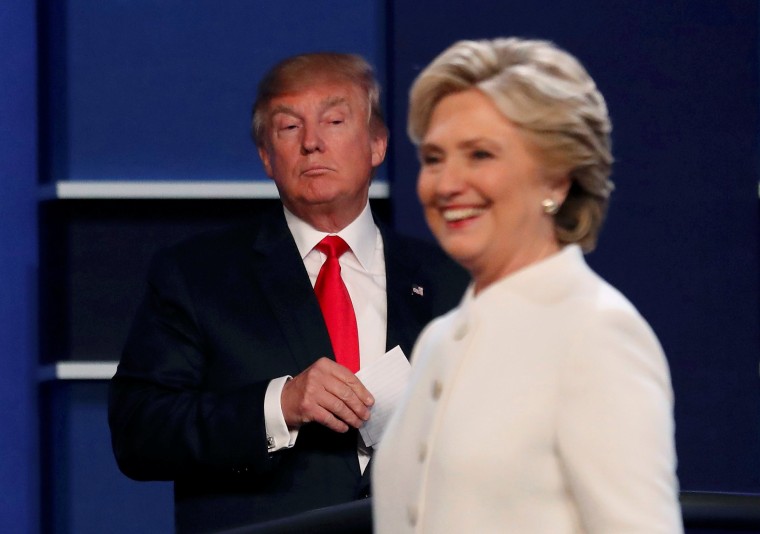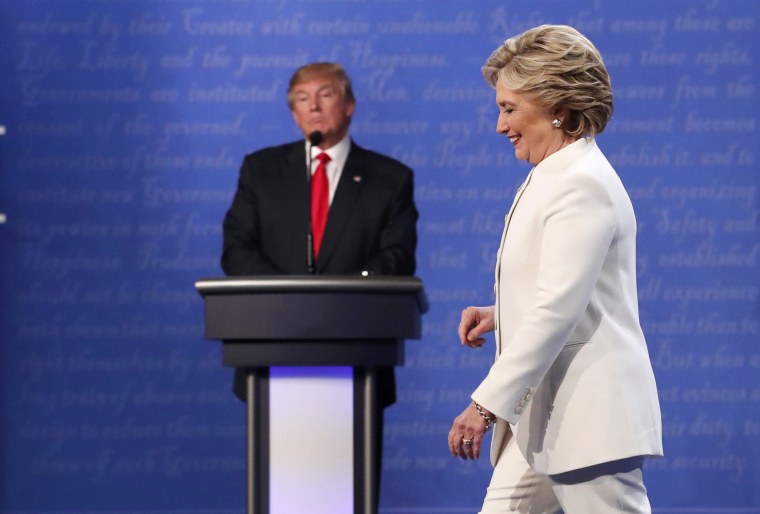AT&T’s announcement that it plans to buy Time Warner for $85.4 billion is drawing reactions not only on Wall Street, but on the presidential campaign trail, as well.
For voters, it could be an early preview of how Hillary Clinton, who has been criticized by her party’s left flank for being too accommodating of corporate interests, might handle big corporate mergers and the anticompetitive concerns they raise if she were elected.
With just two weeks to go before the election, both Donald Trump and Bernie Sanders swiftly and unequivocally denounced the deal. In a rare show of bipartisanship, the top-ranking Republican and Democrat on the Senate’s antitrust subcommittee issued a joint statement saying the deal “would potentially raise significant antitrust issues.”

“That could be significant as far as a preview of overall sentiment on the Republican side,” said eMarketer media analyst Paul Verna. “Opposition from the left side of the political spectrum is pretty typical,” he said, but bipartisan opposition is a much higher hurdle for the companies’ plan. “If this is something both parties are at least skeptical about, it’s definitely not going to help things.”
“If she doesn’t have an opinion yet, I think the imperative put on her will be [to say] what is her opinion,” said Austan Goolsbee, professor of economics at the University of Chicago Booth School of Business, said of Democratic nominee Hillary Clinton.
Democratic vice-presidential nominee Tim Kaine said on NBC's Meet the Press there were “concerns and questions” about the deal, and spokesman Brian Fallon echoed those words and said “there's still a lot of information that needs to come out.”
“It sounds more balanced than the Trump campaign,” said Rich Greenfield, a media analyst at BTIG Research.
Although studied consideration of policy and legal nuance is an asset when governing, it's a liability on the campaign trail this election season.
“The difference in the rhetoric is pretty striking,” said Christopher Yoo, professor and director of the Center for Technology, Innovation & Competition at the University of Pennsylvania Law School.
Clinton needs supporters of more populist Democrats like Sanders and Minnesota Senator Al Franken, who also has expressed concern about the deal, and Massachusetts Senator Elizabeth Warren, who campaigned with Clinton in New Hampshire on Monday.
Analysts are divided on whether or not AT&T should have waited until after the election to finalize and announce its agreement, with some pointing out that populist sentiment running through both parties could undercut the deal.
“The fact that both parties seem to be against this has got to be making the people at AT&T very nervous,” Goolsbee said.
“The probability of passage could depend on the outcome of the upcoming U.S. presidential election and any subsequent changes... at the FCC and the Department of Justice,” Morningstar analyst Neil Macker wrote in a note to investors.
Media industry experts say that the FCC could be more heavy-handed in laying down conditions and stipulations on the deal, but it’s not yet clear if that agency would be the one scrutinizing the deal.
A key question is whether the FCC does or does not have jurisdiction,” Craig Moffett, partner and senior analyst at MoffettNathanson, said via email. “Their public interest test is much more subjective than the DOJ’s rule of law test. If the deal does have to be approved by the FCC, the political pushback will be impossible to ignore.”
A more likely scenario would be a Department of Justice review, which has a higher bar for prohibiting or limiting activities. This means Clinton will have to thread a needle, balancing the expectations of voters with what can legally be done to put brakes on the merger.
“If the government would like to block the merger, our laws require them to go to court,” Yoo said. “That means regardless of what a politician or an enforcement official thinks, it only gets you so far. Ultimately, they have to convince a federal judge,” and the decision whether or not to deny a merger ultimately is up to them. “It’s by no means a rubber stamp,” he said.
“The fundamental challenge for her is people may not like this transaction, but the DOJ needs a legal reason to block the deal,” Greenfield said. “Not liking something doesn’t give you the legal basis to block a transaction.”
